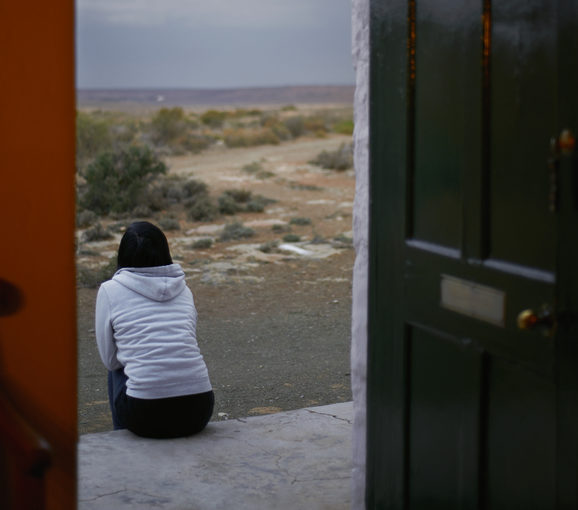When someone repeatedly and excessively engages in a behavior despite the harmful consequences of doing so, it is referred to as a compulsive behavior. People who struggle with compulsions often feel unable to control their behavior due to intense anxiety and distress.
These behaviors rarely relieve anxiety. In most cases, engaging in repetitive behavior only provides temporary relief, according to the American Psychiatric Association. In extreme cases, these repetitive behaviors can interfere with a person’s ability to function in daily life.

Types of Compulsive Behaviors
There are several different types of compulsive behavior—all of which can be debilitating and potentially harmful. Some behaviors—even those that are healthy in moderation—can lead to physical dependence or harm when engaged in compulsively. Common compulsions include:
- Shopping or spending
- Eating
- Gambling
- Hand washing
- Counting
- Skin picking
- Sexual behavior
- Hair pulling
- Exercising
In some cases, compulsive behavior is related to obsessive-compulsive disorder (OCD), a long-lasting mental disorder involving uncontrollable thoughts (obsessions) and behaviors (compulsions).
How Common Are Compulsive Behaviors?
According to the National Institutes of Mental Health, approximately 10% of college students reported at least one compulsive behavior (such as sex addiction, compulsive shopping, or alcohol addiction) during their lifetime.
In the United States, approximately 2.3% of adults are affected by OCD, while about 10% of adults have experienced substance use disorder at some point in their life. In addition, an estimated 21 million adults in the United States struggle with at least one type of addictive behavior, according to data from the National Institute of Health.
Symptoms of Compulsive Behavior
The symptoms of compulsive behavior vary depending on the compulsion. Some common symptoms include:
- Engaging in a behavior repetitively
- Repeating the behavior despite adverse consequences
- Feeling a loss of control toward engaging in the compulsion
- Experiencing an intense urge or craving to engage in the compulsion
- A sense of pleasure associated with the compulsive act
Compulsive behaviors are not always related to OCD. With OCD, compulsions are repetitive behaviors or mental acts that a person feels compelled to perform in response to an obsession, according to the Anxiety and Depression Association of America.
Obsessive-compulsive behavior aims to prevent or reduce anxiety or a feared situation. In extreme cases, ritualistic behavior and excessive worries can fill the day, making it impossible to maintain a regular daily routine. Although there are different forms of OCD, the symptoms of OCD stem from obsessions and compulsions.
According to the Mayo Clinic, obsessions often have themes to them, such as:
- Fear of contamination or germs
- A need for organization and symmetry
- Losing control and harming yourself or others
- An aggressive or sexual focus
Like obsessions, compulsions often have themes, such as:
- Hand washing and cleaning
- Checking and counting
- Orderliness
- Following a strict routine

Find a Therapist for Compulsive Behavior
Get personalized matchesWhat Should You Do if You’re Struggling With Compulsive Behavior?
Treatment options for compulsive behavior depend on the type of compulsion. For some people, a combination of medication and therapy is the most effective treatment. It’s important to work closely with your health care professional and mental health provider to determine which treatment approach will work best. Many treatment plans include:
- Assessment: Compulsive behaviors can be related to impulse control disorders, anxiety disorder, obsessive-compulsive disorder, body dysmorphic disorder, and related compulsive disorders, which are diagnosable mental health conditions under the Diagnostic and Statistical Manual of Mental Disorders. These mental illnesses might seem similar, but each has distinctions, so it’s best to speak with a mental health professional regarding your compulsive actions. Receiving an accurate diagnosis can help you pursue the best treatment approach.
- Therapy: Psychological talk therapy sessions, such as exposure and response prevention interventions and cognitive-behavioral therapy, can help individuals understand and recognize the symptoms of compulsive behavior and related challenges.
- Medication: In some cases, healthcare providers may prescribe anti-anxiety medication or selective serotonin reuptake inhibitors to manage related mental health problems.
- Support groups: Many people struggling with compulsive behaviors have a hard time opening up to family members due to shame or guilt. Support groups that provide a safe space for people with addictions to share experiences and learn from other people with similar experiences and behavioral addictions can help you feel like you’re not alone. To find local support groups, visit The International OCD Foundation website.
- Substance abuse treatment: If you’re struggling with substance addiction, such as alcohol abuse, drug abuse, or abuse of an addictive substance, substance abuse treatment can help you avoid the compulsion to use. Substance abuse treatment is available in both inpatient and outpatient settings and typically involves a holistic approach to treat mental health problems and underlying medical conditions. To find out more, visit the Substance Abuse and Mental Health Services Administration website.
Finding a Therapist for Compulsive Behavior
It’s important to find a mental health professional experienced in treating individuals with OCD, anxiety disorders, substance abuse, and related disorders. Some common therapeutic approaches to OCD and compulsive or ritualistic behavior include:
- Psychotherapy: Forms of psychotherapy, such as cognitive-behavioral therapy (CBT) and exposure and response prevention (ERP), can help individuals with compulsive behaviors manage urges and ease anxiety and distress.
- Habit reversal therapy (HRT): HRT effectively treats behaviors caused by several conditions, from Tourette’s syndrome to skin picking and hair pulling.
- Acceptance and commitment therapy (ACT): ACT involves components of behavior therapy and mindfulness, as well as other strategies to help people take an acceptance approach to their behavior.
If you’re seeking professional treatment for compulsive behaviors, OCD, or a related mental health condition, consider reaching out to a therapist on the WithTherapy platform. At WithTherapy, we’ll connect you to a therapist you feel comfortable with, regardless of your preferences and requirements. One of the qualified mental health professionals on the WithTherapy platform will help you understand your compulsions and develop a treatment plan to improve your quality of life.
Find a Therapist for Compulsive Behavior




